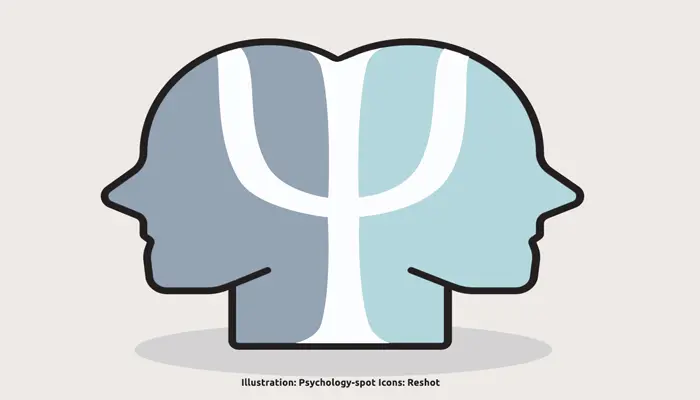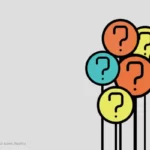
To be normal. Doing what the others do. Wanting what the others want. Pursueing the goals the others pursue. Thinking like everyone else …
In every person there are two antagonistic forces: one that promotes individuation and another that promotes socialization. We all want to assert ourselves as unique and authentic individuals, but at the same time we experience the need to belong to a group and receive a certain degree of validation and social acceptance.
However, there are people in whom prevails the force of socialization. The need for social approval can become so strong that they develop what the psychoanalyst Christopher Bollas called normopathy.
What is normopathy?
Normopathy is “The abnormal impulse towards a supposed normality”, according to Bollas. It is, therefore, a pathological normality. These people do not practice introspection, do not develop self-knowledge or are curious about their inner life, but rather strive to seek social validation.
The normopath suffers from a particular type of anxiety: he or she is afraid to look within himself or herself and examine his or her psychological content. Instead of exploring his or her concerns, desires, and motivations, he or she becomes so focused on integrating himself or herself into society and adapting to the rules that it practically becomes an obsession that ends up affecting his or her well-being.
How to recognize a normopath?
The person with a tendency to normopathy craves – more than anything in the world – approval and social validation, even if it is at the expense of his or her individuality and authenticity. In fact, he or she is afraid of individuality. He or she is terrified of disagreeing and being different.
That is why he or she is always trying to fit in and be like everyone else. The normopath may ask a friend what he or she thinks about a new song, dress or hairstyle before forming an opinion. Basically he or she looks to others to be told what to think or believe.
His or her dependence on his or her external validation is so great that he or she ends up developing a “false self.” That false identity is turned to the outside, trained to respond to external demands and silence its own impulses and desires.
This search for normality becomes abnormal, causing the person to lose contact with himself or herself. The normopath has lost the vital connection with the feelings and internal states of him or her, which usually manifests itself through a more impoverished language. The normopath finds it difficult to put self experiences into words because he or she has lost that connection to his or her deepest self.
Bollas found that such people fail to make the connections between their feelings, ideation, and experience, but instead jump immediately to behavior. It is as if they have a kind of operational thinking that quickly turns the idea into action.
In practice, the normopathic person does not stay “open” long enough for an introspective vision to emerge. “The process of exploring the inner world and the use of reflective thinking to unravel the unconscious and conflict are clearly too slow”, Bollas said.
As a result, he or she exhibits hyper-rationality in dealing with the others. However, lacking the necessary sensitivity and empathy, he or she fails to connect with people on a deeper level, so his or her relationships are often superficial. They are the typical people who try to please and be kind, but with whom we cannot connect.
In certain cases, when normopathy reaches extreme levels, the psychoanalyst Thomas H. Ogden referred to a “psychological death” since there are entire parts of the psyche where affects and meanings cease to be elaborated. In fact, most normopaths feel a great emptiness inside. And the more emptiness they experience inside, the more they turn outside.
That is why it is not surprising that normopaths work better when there is a strict protocol to follow. They are people who accept everything that their culture indicates as good, correct or true. They don’t question those beliefs, ideas, or values. They are afraid to disagree. They simply get carried away by assuming a passive attitude, allowing the mass to guide their life.
The path that leads to normopathy
The ideal citizen that many societies yearn for is the normopath, that person who adapts to the rules and norms following the crowd without questioning anything. In fact, we often assume – wrongly – that mainstream opinion can’t be wrong. We assume that normal is correct and positive. This presumption leads us to think that what everyone does is politically acceptable and desirable. At that point, the opinions and reactions of the majority begin to set the norm and exert a more or less subtle pressure on those who stray from the norm.
That means that all of us, in one way or another, have the germ of normopathy inoculated.
Therefore, the psychologist Hans-Joachim Maaz said that normopathy is “A socially accepted reality for collective neurotic denial and defense against emotional damage, which is present in a large part of the population”.
However, this social pressure is not enough to develop normopathic behavior. In many cases, this desire to fit in at all costs is related to traumatic experiences. The psychologist Barbara Mattsson, for example, found that people who have been through a war have a greater tendency to normopathy. These people strive to be “ordinary” as they crave a certain degree of normality in their lives, which gives them a sense of security.
Normopathy has also been linked to traumatic experiences that generated great shame. Being rejected or belittled can generate enormous shame, an experience that can leave a wound so deep that it pushes the person to disconnect from hiso r her “self”.
In fact, the psychologist Joyce McDougall thinks that the “false self” that normopaths build is the result of the need to survive in the world of the others, but without having sufficient knowledge of the emotional bonds, signs and symbols that make human relationships meaningful and developing.
However, this pathological condition is not only the result of social pressures and oppressions or certain personal traumatic experiences, but is underpinned by a deep fear of looking within.
These people experience great anxiety because they do not understand their deepest urges and desires, especially when these have been socially censored. They are afraid to look within themselves because they do not know what they are going to find in that introspection process, and they do not know how to deal with those supposed shadows.
That is why it is difficult for them to reflect on the facts, to stop and think. They navigate through life with few tools, usually borrowed from the others, so they don’t get lost or have to deal with unexpected risks or surprises.
Technology certainly doesn’t help. Spending too much time in front of screens deprives us of the intimate time and space necessary for self-contemplation, during which our brains can make wider connections between events and our emotional reactions.
A “strong self”, the antidote to normopathy
In normopathy the social is extolled and the individual is ignored. But the normopath does not always follow the rules or behave like a robot programmed to follow the others. In fact, extreme normopathy is marked by breaks from the norm.
Some normopaths end up exploding under the pressure of conformity that robs them of psychological oxygen. In those cases, they are likely to react violently, turning against those models or groups that they used to follow, especially if they feel rejected or disappointed.
To get out of normopathy we only have to develop a “strong self” and accept the shadows that inhabit us. We have to open up to our self, explor and rebuild it. With a curious and compassionate attitude.
To do this, we need to get rid of the idea that normal is appropriate, correct or desirable. We must understand that sometimes normality – understood as what is normalized, regulated and majoritarian – can sometimes do a lot of damage. We need to recover the importance of dissent, reflect on our environment and validate our difference.
But above all, we must stop believing that we are safe from normopathy, because as McDougall said all normal people, at least to some extent, “Move in the world like automatons, they act like programmed robots, they express themselves in a flattened language and without nuance, they have banal opinions and use cliches and platitudes.
“They tend to meekly obey an immutable system of rules of conduct unrelated to who they are and lose contact with themselves while reducing the distance between themselves and others to zero. They are people over-adapted to the real world, too adapted to life, who lose any desire to explore, understand and know, and little by little they limit their thinking to an ‘operative’ functioning and stop using it to know what is happening within themselves or in the hidden world of the others”.
Sources:
Bollas, C. (2018) Meaning and Melancholia: Life in the Age of Bewilderment. Nueva York: Routledge.
Mattsson B. (2018) A Life Time in Exile: Finnish War Children in Sweden after the War. Editorial Noona Kiuru: Universidad de Jyväskylä, Finlandia.
Maaz, H. (2014) Social Normopathy – Narcissism and Body Psychotherapy. 14th European and 10th International Congress of Body Psychotherapy: Lisboa.
Ogden, T. (1992) The primitive edge of Experience. Londres: Maresfield Library.
Bollas, C. (1987) The Shadow of the Object: Psychoanalysis of the Unthought Known. Columbia University Press.
McDougall. J. (1985) Theaters of the mind. Illusion and truth on the psychanalytic stage. London: Free Association Books.



